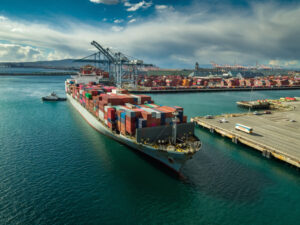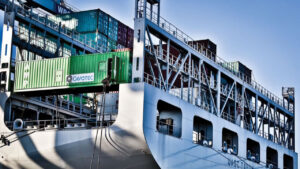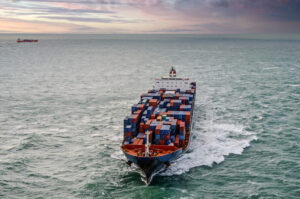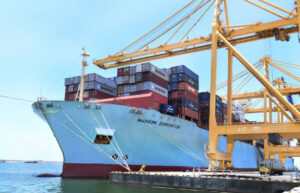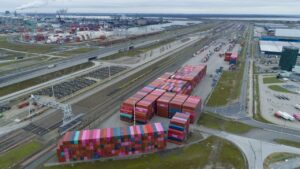Image courtesy of the port of Amsterdam
The port of Amsterdam has begun the construction of a new facility that will convert non-recyclable plastic into fuel for the transport sector.
The project, run by Dutch company Bin2Barrel, is projected to cut CO2 emissions by 57,000 tonnes a year.
The company’s first plant will be built in partnership with the port of Amsterdam through an investment of approximately $33 million and is planned to become operational at the end of 2018.
This operation will be the first commercial application of the technology, which is capable of producing more than 30 million litres of fuel per year out of 35,000 tonnes of non-recyclable plastic — which would otherwise be burnt as waste.
The converted fuel from recycled plastic will be diesel quality (referred to as “ultra-low sulphur diesel” by Bin2Barrel), and yet emits 80% less Co2 than regular diesel from well to wheel.
Additionally, the production of the recycled fuel also produces naphtha — a resource that could be utilized to create new, sustainable plastics.
Read the Port of Los Angeles' technical paper, “Reduction of Air Emissions through Public-Private Partnerships”, for further information on efforts to reduce the environmental impact of maritime operations
Roon van Maanen, Head of Circular & Renewable Industry at Port of Amsterdam, said: “The use of plastic and the lack of a proper processing of plastic cause massive pollution worldwide.
“Bin2Barrel introduces innovative and badly needed technology that will enable us to make use of a currently non-recyclable flow of waste in a manner that makes perfect sense.
“By creating a new product from an otherwise problematic waste product, Bin2Barrel fits perfectly within the mission of Port of Amsterdam to facilitate energy transition as well as transition to a circular economy.”
Co-founder of Bin2Barrel, Floris Geeris, commented: “We are proud that this plant, which is the first of its kind in the world, will help us contribute to energy transition.
“We provide a solution that will process non-recyclable plastic with a higher efficiency, while at the same time producing fuel with an extremely low emission.”
In the future, Bin2Barrel intend to shift their focus to breaking down plastic to its valuable chemical components to create new plastics.



